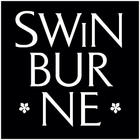Graduate Diploma of Science (Astronomy)
- Posted by Swinburne University of Technology
- Home
- Courses
- Swinburne University of Technology
- Graduate Diploma of Science (Astronomy)
Graduate Diploma of Science (Astronomy)
The Graduate Diploma of Science (Astronomy) is suited to students who have a broad-ranging knowledge of contemporary astronomy. The course provides individuals with the necessary academic knowledge and science communication skills across astronomy and its related fields. Upon graduating, students may seek further learning, or opportunities in teaching or working…
Categories
COURSE DESCRIPTION
The Graduate Diploma of Science (Astronomy) is suited to students who have a broad-ranging knowledge of contemporary astronomy. The course provides individuals with the necessary academic knowledge and science communication skills across astronomy and its related fields.
Upon graduating, students may seek further learning, or opportunities in teaching or working in observatories and similar positions.
Upgrade your skills
Critical thinking and problem solving
Communicating astronomical knowledge
Conducting minor research projects
Assessing astronomical information
Stretch your career further
Astronomy focused science communication roles in observatories, science centres and museum
Pathway to further learning
REQUIREMENTS
Standard entry
- A recognised Bachelor degree, or higher, in a cognate discipline aligned to astronomy or related fields. Some examples include aerospace engineering and technology, computer science, earth sciences, information systems, mathematical sciences, optical science, physics and astronomy, radiography, radiology or
- For applicants who have a recognised Bachelor degree not aligned to astronomy or related fields, application can be made to enter the Graduate Certificate of Science (Astronomy) or
Successful completion of the Graduate Certificate of Science (Astronomy)
All applicants
Upon successful completion of the Graduate Certificate of Science (Astronomy), students may apply to enter the Graduate Diploma of Science (Astronomy) or the Master of Science (Astronomy).
English language requirements
Satisfactory completion of one of the following:
- Swinburne’s English for Academic Purposes (EAP 5 Advanced level) with overall 70%, all skills 65%
- minimum IELTS overall band of 6.5 (Academic Module) with no individual band below 6.0
- Pearson (PTE) minimum score of 58 (no communicative skills less than 50)
- TOEFL iBT (internet-based) -79 (no less than 13 in reading, 12 in listening, 18 in speaking 21 in writing)
- C1 Advanced – 176, no band less than 169
- any other equivalent assessment of English language proficiency.
EDUCATIONAL INSTITUTION
Swinburne University of Technology is a public university based in Melbourne- that is among the top 3% of universities in the world. The University focuses on science, technology and innovation and offers courses well recognised by professional organisations. The Good Universities Guide 2016 awarded the University five stars for both graduate satisfaction and generic skills and four stars for teaching quality. It also features in the top 200 ranked universities in the QS Graduate Employability Rankings; and enjoys close ties with industry- providing students with invaluable workplace experience.
Swinburne University of Technology is a public university based in Melbourne- that is among the top 3% of universities in the world. The University focuses on science, technology and innovation and offers courses well recognised by professional organisations. The Good Universities Guide 2016 awarded the University five stars for both graduate satisfaction and generic skills and four stars for teaching quality. It also features in the top 200 ranked universities in the QS Graduate Employability Rankings; and enjoys close ties with industry- providing students with invaluable workplace experience.




